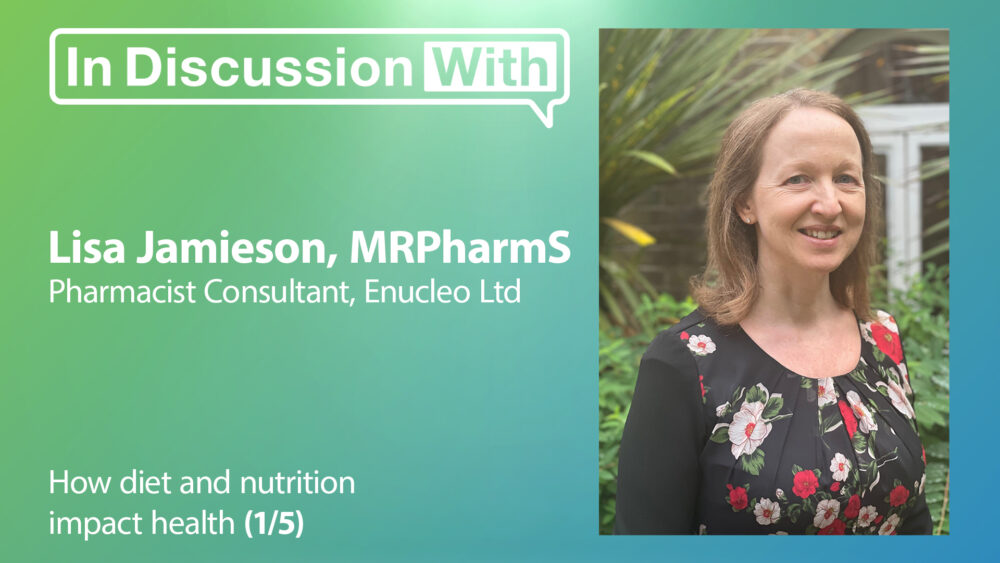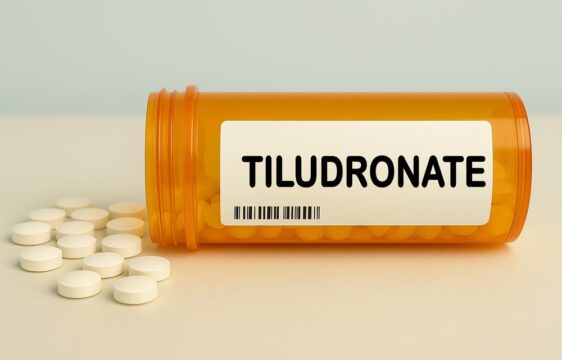Advertisment
How diet and nutrition impact health

Lisa Jamieson’s interest in nutrition and nutritional supplements was sparked by some of her own experiences whilst studying for a master’s degree in nutritional medicine. She realised that, in some circumstances, optimal diets could reduce the need for prescribed medication. IMI spoke to her to find out more.
After working in the NHS for more than 10 years, first as a primary care pharmacist and then in a commissioning role, Lisa Jamieson embarked on studies for a master’s degree in nutritional medicine. During this time her research led her to realise that optimal diets, including supplements, if necessary, could reduce the need for prescribed medication.
“It’s important to get diet right first before we go down the route of nutrient supplements. I think as pharmacists we often think of nutrient supplements as being a key way to manage nutrition but I think it’s really important to stress that diet needs to be addressed first”, Ms Jamieson emphasises. However, even with a good diet the quality of food available can also be an important factor. A case in point is magnesium intake. “Over the last 60 years or so the content of magnesium in our fruits and vegetables has reduced by about 20 to 30%, so even with a really good diet that’s full of … nutritious fruits, vegetables, nuts [and] other good sources of magnesium, we still may not be getting enough”, she explains. Moreover, food processing can lead to further losses of magnesium, she adds.
Sceptics will point out that there are few randomised controlled trials to support the value of food supplements. There are good examples where the hypothesis seems sound, for example, fish oils and omega-3 fatty acids for eczema, but randomised trials and meta-analyses of randomised trials then return equivocal results. Ms Jamieson points out that the observational studies that generated the original hypotheses were based on whole diets or whole foods such as fish in the diet. “We then try and apply the pharmaceutical model to that. We take fish oil out of the fish and put it in a capsule but when you eat fish you get much more than just fish oil, you get lots of other nutrients in there as well. You get protein, you get zinc, you get iodine, you get various other nutrients ….. so when you take just one element of that food out and then put it into a capsule to … try to replicate what you’ve seen in the observational studies, there may be confounding factors”, she says. Furthermore, trials may include participants with both good and poor diets. Such factors are often not taken into account in intervention studies, she notes.
Another important issue is the idea that observational studies are only hypothesis-generating and do not establish causality. “We need to start to think beyond that. So, for example, when we say that smoking causes cancer, we know that only from observational research – we haven’t done randomised controlled trials to look at whether smoking can cause cancer but we still use that word ‘cause’ and you can prove causality from observational research”, says Ms Jamieson. The Bradford-Hill criteria are widely used to assess whether an observed association is likely to be causal. The criteria include points such as consistency of findings, strength of association, and biological plausibility. “Looking at the whole diet can be quite tricky because obviously there are many different factors …. people are starting to be a little bit more open-minded about the fact that if we have lots of observational studies that look for these elements of causality, if it’s reproduced time and time again across lots of different studies ….. then that could potentially show us that eating a certain way is causal”, she says.
About Lisa Jamieson
Lisa Jamieson BPharm (Hons), MSc (Clin Pharm), MSc (Nutr Med), MRPharmS
Lisa Jamieson currently works as a pharmacist consultant from her own company, Enucleo Ltd. She has a portfolio career with two main roles – first, as a senior consultant in a market access consultancy, working at the interface between the pharmaceutical industry and the NHS and second, as a pharmacist consultant in nutritional medicine. This latter role involves educating pharmacists and other healthcare professionals either in writing or as a speaker at conferences.
Read and watch the full series on our website or on YouTube.
This episode of ‘In Discussion With’ is also on Spotify. Listen to the full podcast now.





